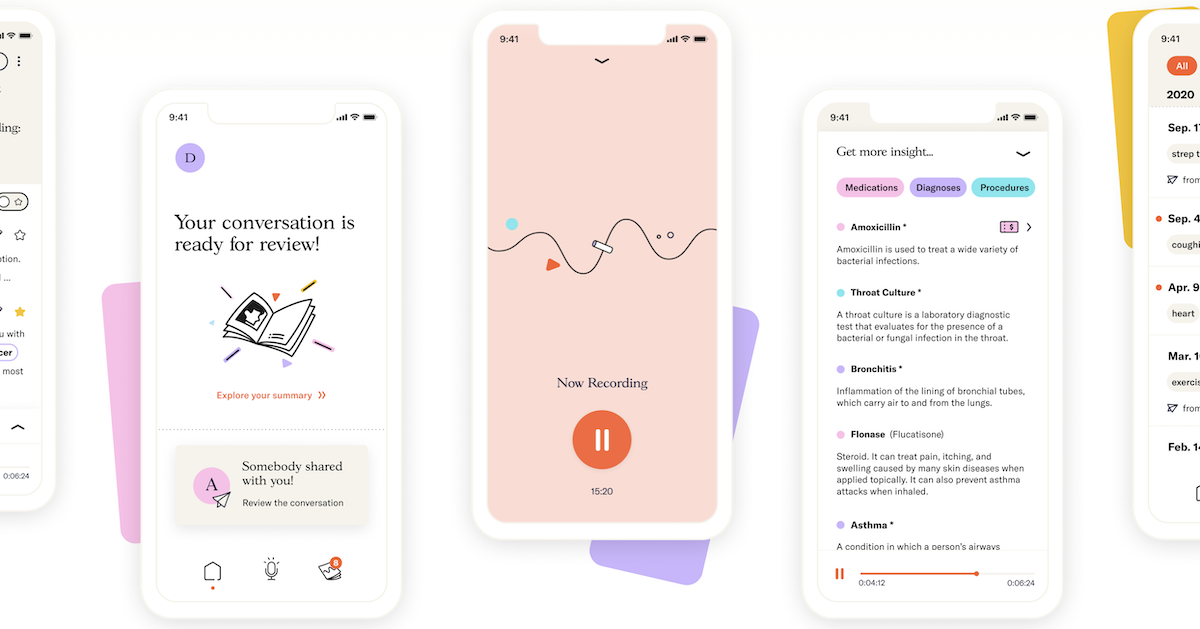
A new startup called Abridge launched this morning, fueled by $15 million in funding. The new platform was designed to help patients follow their provider’s advice, and to educate users about their health.
The Seed and Series A round was led by Union Square Ventures and UMPC with participation from Bessemer Venture Partners, Pillar, KdT Ventures and angel investors.
The platform lets patients record a doctor’s visit. The app then uses machine learning to turn that recording into a selective transcript that focuses on the medical side of the visit including symptoms, conditions, procedures and medications.
The tool was designed to help patients learn more about their diagnosis and medications. For example, the platform defines certain medical terms.
WHY IT MATTERS
Adherence, or lack of adherence to medical advice has been an age-old story in healthcare. In fact, the CDC reports that one in five new prescriptions are never filled and more than 50% are taken incorrectly. The agency attributes this to a number of factors, including unintentional factors like not understanding the dose, and intentional factors such as modifying a treatment based on ability to pay.
Tech companies have recently looked to tackle patient adherence with education.
“It’s no secret that our healthcare system has cracks in it, and while I love my work as a cardiologist, I could only help so many people as a practicing physician. Technology makes it possible to affect the whole system and all the people and doctors impacted,” Dr. Shiv Rao, cofounder and CEO of Abridge, said in a statement. “We built Abridge because we recognized that everyone needs an easy way to remember and understand the details of their care. We can now help so many more people feel comfortable and confident at their medical appointments and in turn live healthier lives.”
THE LARGER TREND
Digital tools have often been employed to help patients better understand their care. In mid-September NVIDIA released an automated speech-recognition and natural language processing technology that can transcribe and organize information from a telemedicine visit both for a patient and provider. The company is pitching this as a way to help patients understand directions and gain more insights into their visits.
Startup Wellth has a slightly different approach to treatment adherence. The company uses behavioral economics, including financial incentives, in order to boost medication adherence and health behaviors.

















